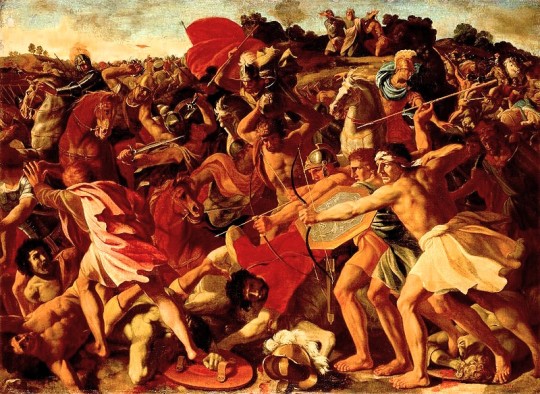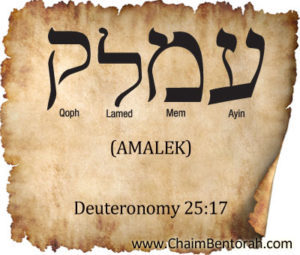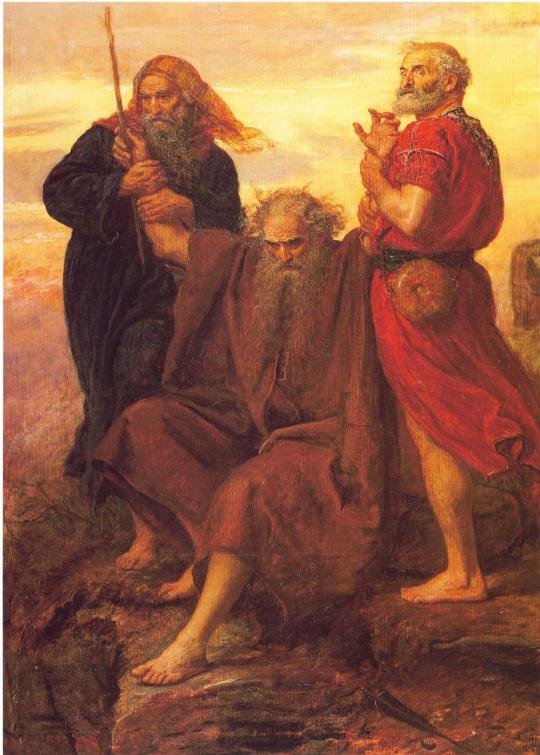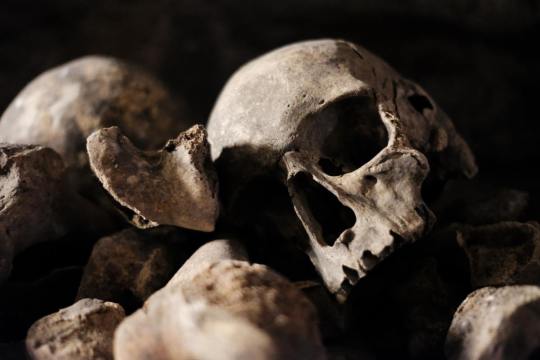#Amalekites
Note
The Jews who argue against the word “genocide” do not do so because they support what is happening; they do so because they are arguing that what is happening is better described by the term “ethnic cleansing,” which is also a horrifically bad and inexcusable thing. It just also doesn’t have the antisemitic connotation here.
Hey, need to point out using Ethnic Cleansing (which i only saw used by slightly less radical left) is just as bad and inaccurate to use as Genocide- Jews have experienced Ethnic Cleansing and to label this war as such disregards the actual ethnic cleansing Jews experienced for centuries- most recently SWANA Jews! And I would argue Ethiopian Jews too.
Individuals willingly and temporarily leaving their home because it is a war zone (due to a war their leadership systems!) is not ethnic cleansing. We can look to what is happening to Armenians, and Afghans in Pakistan- that is ethnic cleansing.
I really need people to brush up not only on their dictionary terms but on the legal definitions that help determine something. Definitions and the correct usage of them matter! Languages matters- when we use definitions wrongly we water them down.
This is why we have people screaming genocide at something that isn’t one! Because their definition of genocide has been watered down- because every war is suddenly a genocide and every bad person I disagree with is a Nazi.. You get my drift. I’m very sensitive to correct usage of words and definitions.
I absolutely understand this perspective and I refrain from using either term personally with regard to this conflict.
I respect your sensitivity, which is one of many reasons I urge people to try to understand the impact of these words on the Jewish community.
That said, I am sensitive also to the fact that there are dictionary definitions of things and legal definitions of things and scholarly definitions of things. I try to keep in mind that everyone is approaching this conflict from their own cultural context so I am not as intense personally about correcting people's usage of these terms, simply because I'm not expert enough to determine which definition is "best." I think legal definitions should definitely always be used in the context of legal discussions, but I don't know if the legal definition is best in a sociological context.
I want to be clear: I'm not disagreeing with you. I'm just respecting my own limitations on this subject matter.
Rest assured, we agree on the main point here: It is important to be specific and accurate in the usage of terms. We cannot allow emotions running high to justify the watering down of such serious terms.
People of all identities affected by this conflict should approach discussions of terms in the same way they approach everything else about this conflict: with good faith, an open heart, and a goal of peace.
I respect that you also disagree with the use of the term ethnic cleansing. However, I personally do not agree that it is "as bad." This is not me trying to tell you that you're wrong. I just think this particular discussion point has a lot of equally valid takes. Your take is absolutely valid. But allow me to explain my take on the situation, which I consider to be equally valid:
I think there is a lot more wiggle room in the term "ethnic cleansing" than there is in the term "genocide." When I use the term ethnic cleansing, I am referring to the United Nations Office on Genocide Prevention and the Responsibility to Protect.
The key takeaways I have from the United Nations here is that ethnic cleansing is not actually a crime under international law. The two very loose definitions offered here are:
… rendering an area ethnically homogeneous by using force or intimidation to remove persons of given groups from the area.
a purposeful policy designed by one ethnic or religious group to remove by violent and terror-inspiring means the civilian population of another ethnic or religious group from certain geographic areas.”
I consider Palestinians to be a an ethnic group. I know some critics do not, but I disagree with those people. So if you do not agree with me on that, I doubt we will agree on the specifics that follow. I think recognizing Palestinian identity is vital to fostering a peaceful future for all currently residing in the Levant. However, I know that there are also politics and political realities in Israel between those who call themselves Arab-Israelies vs. Palestinians. I do my best to stay informed about topics, but this is too fraught for me to parse with any authority. I believe in Palestinian ethnic identity because of several reasons I won't elaborate on here, but can elaborate on upon request.
I am not particularly swayed by the first bullet point. I do not believe that Israel is trying to render Palestine as ethnically homogeneous, even though they are using force on the area.
The second bullet point has merit to me. I do not believe all Jews or all Israelis wish to eradicate and remove Palestinians from the Levant, so I do not consider Israelis in general or Jews in general responsible for the cleansing. Furthermore, even though I am personally a pacifist, I am also pragmatic. I believe there are much less violent ways to eradicate Hamas than the heavy bombing currently taking place. I also know Hamas has been firing rockets into Israeli civilian areas for quite a long time and Israel has every right to treat Hamas like the hostile, terrorist organization it is.
But I do hold Netanyahu and the Likud party responsible for their affect on Palestinian civilians. I was disgusted when Netanyahu justified his violent actions by invoking Amalek. And I believe that by invoking Amalek he did in fact cause all of his actions as commander of the military to be in support of ethnic cleansing. I do not deny the parallels between the Amalekites relationship to the ancient people of Israel and Palestine's relationship to the modern state of Israel: namely, repeated attempts to destroy Israel, repeated attacks on Israeli civilians (including the taking of hostages and the attack of women and children and the elderly as a terror tactic). However, what I cannot and will never endorse is the implication that we should treat Palestine the way ancient Israel treated the Amalekites.
G-d ordered the people of Israel to blot out the living memory of the Amalekites from the earth--to eliminate every living Amalekite as well as their city and livestock so that they would only be remembered for the horror they inflicted.
We cannot and must not treat modern Palestinians in this manner, and by invoking a religious precedent in this manner as justification for the modern assault on Gaza, I cannot really conceive of a way in which this is not a specific, religious directive to violently target a civilian population on the grounds of their ethnic identity.
Before anyone uses this as an excuse to demonize all Israelis or Jews, I want to explicitly shut that down as well. I know for a fact that not all Israelis or Jews support or agree with Netanyahu here. And while Netanyahu's horrific invocation of Amalek must be rejected, that rejection does not mean that there should be no consequences for Hamas terrorists and those who support their terror. What it does mean, is that as long as Netanyahu is directing the military response, he is, in my personal opinion, carrying out an ethnic cleansing. And we must be able to criticize him for that and respect Palestinian civilians enough to give them the grace to use the phrase "ethnic cleansing" to describe the horror they are experiencing. Criticizing this does not mean Israel has no justifiable military response. Hamas has been engaging in antisemitic terror and mass violence against Israelis and Jews for a long time, even prior to 10/7, in a way that must be stopped by force. However, the main goal for all people of good faith affected by this conflict should always remain peace, not retaliation or attacks on ANYONE (Jewish or Arab) based on their ethnic identity.
I fully respect that you may disagree with this. As there is no legally widespread accepted definition of ethnic cleansing, you may be operating under a different set of criteria to define the term "ethnic cleansing." That's OK, too. I would not call myself uninformed on the topic of the i/p conflict. I have been actively affected by it for over 25 years. That said, I'm also no scholar or international expert on the topic either. I would rate my knowledge and familiarity with the conflict and relevant terminology to be much higher than average and steeped in years of observation and personal experience. So, if I still view his as a matter up for a variety of interpretations, I cannot fault others for feeling the same way, even if that means they disagree with me. I hope this makes sense, and you are able to see my stance as legitimate, even if you disagree with it.
#ask me stuff#4everevolving#i/p#israel#palestine#jewish muslim solidarity#arab israeli solidarity#ethnic cleansing#terminology#amalek#amalekites#fuck netanyahu#hamas is a terrorist organization
29 notes
·
View notes
Text

The Defeat of the Amalekites
11 And it came to be, when Mosheh held up his hand, that Yisra’ĕl prevailed. And when he let down his hand, Amalĕq prevailed.
12 But Mosheh’s hands were heavy, so they took a stone and put it under him, and he sat on it. And Aharon and Ḥur supported his hands, one on one side, and the other on the other side. And his hands were steady until the going down of the sun.
— Exodus 17:11-12 | The Scriptures (ISR 1998)
The Scriptures 1998 Copyright © 1998 Institute for Scripture Research. All Rights reserved.
Cross References: Exodus 17:10; Exodus 17:13; Exodus 24:14; Joshua 8:26; Isaiah 35:3
#Moses#Israel#battle#war#Amalekites#Exodus 17:11-12#Book of Exodus#Old Testament#ISR 1998#The Scriptures 1998#Institute for Scripture Research#Holy Bible
6 notes
·
View notes
Video
youtube
Doug Wilson Thug Life- Killing the Amalekites
Highlighting, as one commentator stated, ‘atheists shouldn’t be raising moral challenges in a universe they believe is amoral.’
2 notes
·
View notes
Text
Just Desserts Can Be Difficult to Swallow
4 So Saul summoned the people and numbered them in Telaim, two hundred thousand men on foot, and ten thousand men of Judah. 5 And Saul came to the city of Amalek and lay in wait in the valley. 6 Then Saul said to the Kenites, “Go, depart; go down from among the Amalekites, lest I destroy you with them. For you showed kindness to all the people of Israel when they came up out of Egypt.” So the…
View On WordPress
#1 Samuel#1 Samuel 15#Amalekites#disobedience#Israel#judgment#obedience#rebellion#sacrifice#Samuel#Saul#sin#the will of God#wickedness
0 notes
Text
Judges 7: God Thins Gideon's Ranks Before Defeating The Midianites
1 Early in the morning, Jerub-Baal (that is, Gideon) and all his men camped at the spring of Harod. The camp of Midian was north of them in the valley near the hill of Moreh.
2 The Lord said to Gideon, “You have too many men. I cannot deliver Midian into their hands, or Israel would boast against me, ‘My own strength has saved me.’
3 Now announce to the army, ‘Anyone who trembles with fear may turn back and leave Mount Gilead.’” So twenty-two thousand men left, while ten thousand remained.
4 But the Lord said to Gideon, “There are still too many men. Take them down to the water, and I will thin them out for you there. If I say, ‘This one shall go with you,’ he shall go; but if I say, ‘This one shall not go with you,’ he shall not go.”
5 So Gideon took the men down to the water. There the Lord told him, “Separate those who lap the water with their tongues as a dog laps from those who kneel down to drink.”
6 Three hundred of them drank from cupped hands, lapping like dogs. All the rest got down on their knees to drink.
7 The Lord said to Gideon, “With the three hundred men that lapped I will save you and give the Midianites into your hands. Let all the others go home.”
8 So Gideon sent the rest of the Israelites home but kept the three hundred, who took over the provisions and trumpets of the others.
Now the camp of Midian lay below him in the valley.
9 During that night the Lord said to Gideon, “Get up, go down against the camp, because I am going to give it into your hands.
10 If you are afraid to attack, go down to the camp with your servant Purah
11 and listen to what they are saying. Afterward, you will be encouraged to attack the camp.” So he and Purah his servant went down to the outposts of the camp.
12 The Midianites, the Amalekites and all the other eastern peoples had settled in the valley, thick as locusts. Their camels could no more be counted than the sand on the seashore.
13 Gideon arrived just as a man was telling a friend his dream. “I had a dream,” he was saying. “A round loaf of barley bread came tumbling into the Midianite camp. It struck the tent with such force that the tent overturned and collapsed.”
14 His friend responded, “This can be nothing other than the sword of Gideon son of Joash, the Israelite. God has given the Midianites and the whole camp into his hands.”
15 When Gideon heard the dream and its interpretation, he bowed down and worshiped. He returned to the camp of Israel and called out, “Get up! The Lord has given the Midianite camp into your hands.”
16 Dividing the three hundred men into three companies, he placed trumpets and empty jars in the hands of all of them, with torches inside.
17 “Watch me,” he told them. “Follow my lead. When I get to the edge of the camp, do exactly as I do.
18 When I and all who are with me blow our trumpets, then from all around the camp blow yours and shout, ‘For the Lord and for Gideon.’”
19 Gideon and the hundred men with him reached the edge of the camp at the beginning of the middle watch, just after they had changed the guard. They blew their trumpets and broke the jars that were in their hands.
20 The three companies blew the trumpets and smashed the jars. Grasping the torches in their left hands and holding in their right hands the trumpets they were to blow, they shouted, “A sword for the Lord and for Gideon!”
21 While each man held his position around the camp, all the Midianites ran, crying out as they fled.
22 When the three hundred trumpets sounded, the Lord caused the men throughout the camp to turn on each other with their swords. The army fled to Beth Shittah toward Zererah as far as the border of Abel Meholah near Tabbath.
23 Israelites from Naphtali, Asher and all Manasseh were called out, and they pursued the Midianites.
24 Gideon sent messengers throughout the hill country of Ephraim, saying, “Come down against the Midianites and seize the waters of the Jordan ahead of them as far as Beth Barah.”
So all the men of Ephraim were called out and they seized the waters of the Jordan as far as Beth Barah.
25 They also captured two of the Midianite leaders, Oreb and Zeeb. They killed Oreb at the rock of Oreb, and Zeeb at the winepress of Zeeb. They pursued the Midianites and brought the heads of Oreb and Zeeb to Gideon, who was by the Jordan.
#Lord God Jehovah#Holy Bible#Judges ch.7#Israelites#Gideon#Men#Camped#Israel#Boast#Thinning#Ranks#Drink#Separated#Three Hundred#Purah#Servant#Soldiers#Handover#Defeated#Scout#Midianites#Amalekites#Dream#Confirmation#Deceived#Destroyed#Oreb#Zeeb#Dead#Only Him
0 notes
Text
01 Work, The art of War, Nicolas Poussin's The Victory of Joshua over the Amalekites, with Footnotes
Nicolas Poussin (1594–1665)The Victory of Joshua over the Amalekites, c. between 1623 and 1626Oil on canvasheight: 97.5 cm (38.3 in); width: 134 cm (52.7 in)Hermitage Museum, Saint Petersburg
The Amalekites, descendants of Amalek, were an ancient biblical nation living near the land of Canaan. They were the first nation to attack the Jewish people after the Exodus from Egypt, and they are seen…

View On WordPress
#Amalekites#Art#Bible#Biography#Christ#Classical#footnotes#History#Icon#Icons#Jesus#mythology#NICOLAS POUSSIN#Paintings#Realism#religion#Zaidan#Zionism
0 notes
Text
Valley of the Amalekites and Canaanites
Numbers 14:20-25
20 Then the Lord said: “I have pardoned, according to your word; 21 but truly, as I live, all the earth shall be filled with the glory of the Lord—22 because all these men who have seen My glory and the signs which I did in Egypt and in the wilderness, and have put Me to the test now these ten times, and have not heeded My voice, 23 they certainly shall not see the land of which…
View On WordPress
0 notes
Text
Deuteronomy Chapter 25
This chapter is about more miscellaneous laws. Again. This chapter, however, talks about marriage rules. It also talks about the Amalekites.
This chapter is about miscellaneous laws. Again. This chapter talks about, a majority of the time, marriage rules. It also talks about the Amalekites. It’s a short chapter. Enjoy.
When people have a dispute, they’re to take it to court. The judges will decide the case, acquitting the innocent & condemning the guilty. If the guilty person deserves to be beaten, the judges have to make the guilty…
View On WordPress
#Amalek#Amalekites#bible#Deuteronomy 25#Flogging#Genitals#I Corinthians#I Timothy#Judaism#Judges#Old Testament#Oxen#Tanakh#The Family of the Unsandaled#Weights & Measurements#Widows
0 notes
Text
Who was Amalek

View On WordPress
0 notes
Text
Much Better To Listen And Obey
Neal Pollard
God has a straightforward task for Saul in 1 Samuel 15. As a consequence for their opposition to Israel as they are fleeing Egypt in the battle where Aaron and Hur hold up Moses’ arm as Joshua leads the battle (Ex. 17:8-16), Amalek was devoted for destruction by God (Deut. 25:17-19)(1 Sam. 15:1-3). God is not ambiguous. He says “devote to destruction all they have” (3) and “do not…

View On WordPress
0 notes
Text
youtube
so powerful! beautiful sermon on Esther starting at 15 minutes in.
#God#Christ#Jesus#Salvation through Christ#Esther#Haman#Mordecai#David#Solomon#Amalekites#sword of the spirit#spiritual armor#Youtube
0 notes
Text
Translating the Bible: Israel’s War Against the Amalekites
Moses Praying for Victoryby John Everett Millais (1871)Wikimedia Commons
After the people of Israel left Egypt, they traveled through the wilderness of Sin and journeyed by stages, going from place to place as the LORD commanded (Exodus 17:1). The wilderness of Sin is another name for the wilderness of Sinai.
When they arrived at Rephidim, the people complained to Moses because there was no water…

View On WordPress
#Aaron#Amalekites#Hebrew Bible#Holy War#Hur#Joshua#Moses#Old Testament#Translating the Bible#Translation Problems#Yahweh Nissi
0 notes
Text
Devoted to Destruction (1 Sam 15:1-3)
Devoted to Destruction (1 Sam 15:1-3)
The following is an unedited sermon manuscript; for an explanation of my sermon manuscripts, click here.
What do you do when something God does seems to contradict who God is? When His commands or actions seems to compromise God’s character?
When God informs Abraham of His intention to destroy Sodom and Gomorrah, Abraham is shocked. And so might we be, were we in his shoes. He asks God, “Will…

View On WordPress
#1 Samuel 15:1-3#Amalekites#Canaanite Conquest#Exodus 34:6-7#Genesis 18:25#Genocide#Holy War#Hyperbole#Matthew 15:22-28
0 notes
Text

Concept I made for my worldbuilding around 1.5 years ago.
An Amalekite warrior from the Levantine Bronze Age. The Amalekites were hunters and raiders. Some of them were even rumoured to have been vampires and have the ability to raise the dead.
#dungeons and dragons#board games#concept art#fantasy art#tabletop games#digital painting#magic the gathering#character design#ancient history#armor#amalekite#bronze age#vampire#barbarian#the witcher#lord of the rings#warhammer#games workshop
75 notes
·
View notes
Text
A Pass or Fail Test
47 When Saul had taken the kingship over Israel, he fought against all his enemies on every side, against Moab, against the Ammonites, against Edom, against the kings of Zobah, and against the Philistines. Wherever he turned he routed them. 48 And he did valiantly and struck the Amalekites and delivered Israel out of the hands of those who plundered them.
49 Now the sons of Saul were Jonathan,…
View On WordPress
#1 Samuel#1 Samuel 14#1 Samuel 15#a test#Amalek#Amalekites#disobedience#enemies of Israel#God#Jehovah#Joshua#judgment#Moses#Samuel#Saul
0 notes
Text
Numbers 13: God Commands Moses To Send Men To Explore The Land Of Canaan
1 The Lord said to Moses,
2 “Send some men to explore the land of Canaan, which I am giving to the Israelites. From each ancestral tribe send one of its leaders.”
3 So at the Lord’s command Moses sent them out from the Desert of Paran. All of them were leaders of the Israelites.
4 These are their names:
from the tribe of Reuben, Shammua son of Zakkur;
5 from the tribe of Simeon, Shaphat son of Hori;
6 from the tribe of Judah, Caleb son of Jephunneh;
7 from the tribe of Issachar, Igal son of Joseph;
8 from the tribe of Ephraim, Hoshea son of Nun;
9 from the tribe of Benjamin, Palti son of Raphu;
10 from the tribe of Zebulun, Gaddiel son of Sodi;
11 from the tribe of Manasseh (a tribe of Joseph), Gaddi son of Susi;
12 from the tribe of Dan, Ammiel son of Gemalli;
13 from the tribe of Asher, Sethur son of Michael;
14 from the tribe of Naphtali, Nahbi son of Vophsi;
15 from the tribe of Gad, Geuel son of Maki.
16 These are the names of the men Moses sent to explore the land. (Moses gave Hoshea son of Nun the name Joshua.)
17 When Moses sent them to explore Canaan, he said, “Go up through the Negev and on into the hill country.
18 See what the land is like and whether the people who live there are strong or weak, few or many.
19 What kind of land do they live in? Is it good or bad? What kind of towns do they live in? Are they unwalled or fortified?
20 How is the soil? Is it fertile or poor? Are there trees in it or not? Do your best to bring back some of the fruit of the land.” (It was the season for the first ripe grapes.)
21 So they went up and explored the land from the Desert of Zin as far as Rehob, toward Lebo Hamath.
22 They went up through the Negev and came to Hebron, where Ahiman, Sheshai and Talmai, the descendants of Anak, lived. (Hebron had been built seven years before Zoan in Egypt.)
23 When they reached the Valley of Eshkol, they cut off a branch bearing a single cluster of grapes. Two of them carried it on a pole between them, along with some pomegranates and figs.
24 That place was called the Valley of Eshkol because of the cluster of grapes the Israelites cut off there.
25 At the end of forty days they returned from exploring the land.
Report on the Exploration
26 They came back to Moses and Aaron and the whole Israelite community at Kadesh in the Desert of Paran. There they reported to them and to the whole assembly and showed them the fruit of the land.
27 They gave Moses this account: “We went into the land to which you sent us, and it does flow with milk and honey! Here is its fruit.
28 But the people who live there are powerful, and the cities are fortified and very large. We even saw descendants of Anak there.
29 The Amalekites live in the Negev; the Hittites, Jebusites and Amorites live in the hill country; and the Canaanites live near the sea and along the Jordan.”
30 Then Caleb silenced the people before Moses and said, “We should go up and take possession of the land, for we can certainly do it.”
31 But the men who had gone up with him said, “We can’t attack those people; they are stronger than we are.”
32 And they spread among the Israelites a bad report about the land they had explored. They said, “The land we explored devours those living in it. All the people we saw there are of great size.
33 We saw the Nephilim there (the descendants of Anak come from the Nephilim). We seemed like grasshoppers in our own eyes, and we looked the same to them.”
#Lord God Jehovah#Holy Bible#Numbers ch.13#Moses#Aaron#Israelites#Mount Sinai#Canaan#Explore#Tribes#Desert of Paran#Desert Of Zin#Valley Of Eshkol#Community#Reports#Amalekites#Hittites#Jebusites#Amorites#Canannites#Nephilim#Descendants
0 notes